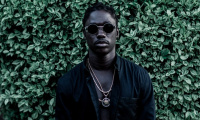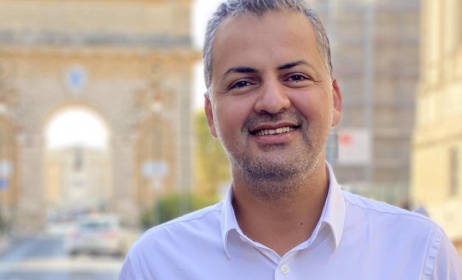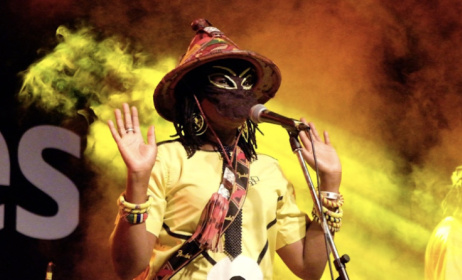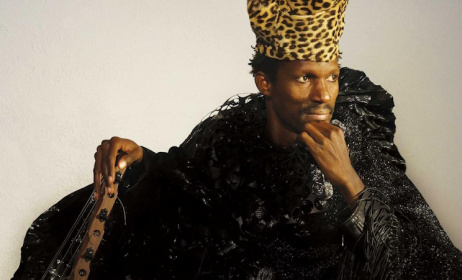Jordan MoOzy on ACCES 2024 and finding his musical North Star
By Khumbulani Muleya
Botswana-born Zimbabwean musician Jordan MoOzy is among the first batch of artists selected to perform at this year’s ACCES music conference taking place in Kigali, Rwanda, on 14, 15 and 16 November 2024.
 Jordan MoOzy.
Jordan MoOzy.
Trading on an eclectic sound that blends R&B, pop, alté, highlife, and hip hop, Jordan MoOzy is part of a new generation of artists unimpeded by borders and styles who are shaping the next sound of Africa.
Organised by the Music In Africa Foundation (MIAF) annually, the pan-African music trade show provides a platform for industry professionals from across Africa and around the globe to connect and collaborate through workshops, conference sessions, networking spaces, exhibitions, live music shows, and more.
Zimbabwean journalist Khumbulani Muleya recently caught up with Jordan MoOzy to discuss the value of events such as ACCES, finding his musical North Star and more.
MUSIC IN AFRICA: Congratulations on being selected for the ACCES showcases programme. How does it feel to be mentioned in this extraordinary line-up of diverse artists from Africa?
JORDAN MOOZY: I am grateful to have been deemed worthy of this opportunity. My team and I look forward to rocking out in Kigali for the first time. We aim to give our all and experience all that the city has to offer if it would be ever so generous as to grant us the same in return.
What are your thoughts on the importance of festivals like ACCES in shaping the African music industry's future?
Africa is a birthplace and home to a large community of talented souls yearning for platforms such as ACCES to pave the way to greater ecosystems and institutions that challenge creatives to bloom into the best versions of themselves to succeed in what is not exactly the easiest of industries to thrive in. I believe they serve as custodians to our blooming generations and serve as a guiding hand.
You have worked with the skilled composer and producer Mpho Pholo (37MPH) and other producers such as Jeremiah Mutsakani (Spirit Fingers). What have you learned from these collaborations and how do they continue to shape your music?
I tend to attract geniuses and these two gentlemen are nothing short of that. Their level of skill, knowledge and discipline in their craft is exceptional. There is so much to learn, which is daunting but exciting. I could say making music is like making love, you have to be in sync on a spiritual level. There is a lot of trust involved as it stems from the spirit and soul, so having people smarter than you with whom you share the same frequency makes it feel effortless.
You have done well in Botswana. How has your experience been living and creating music there? Has it influenced your sound one way or the other and how would you describe the creative landscape? Are there any unique challenges or opportunities that you have encountered?
I was privileged to grow up there, as it taught me a myriad of life lessons that are specific to the path for which I am destined. My influences are global and limitless; they don’t stem from one place, but Botswana has definitely contributed in its special way to the kind of music that I make. Setswana is a beautiful language that I gracefully add a hint of in my lyrics from time to time. I am humbled to have begun my journey there. I am even more appreciative of it being the birthplace of my fans who have been the foundation that held me up since I first started and who have always been the wind beneath my wings that lifted me, my North Star in uncharted waters. My goal has always been to conquer the world, so it was inevitable that it would become small for me, as it is an industry still finding its way in contrast to much larger industries.
What are your thoughts on the support systems in place for creatives in Botswana, such as resources, funding, or platforms for showcasing work?
I choose to have faith in the support systems that exist within our small country, acknowledging that they operate within the limitations of their capacity. Given the constraints of our nation's size and population, I recognise that there are only so many resources available to foster growth and development. Moreover, when artistic expression ventures beyond the familiar genres or norms that our country is accustomed to, it often falls into a niche market that, while passionate, may not be sustainable in the long term. This is the harsh reality that we must confront with clarity and compassion, even as we strive to push boundaries and challenge the status quo.
In April this year, you performed in Harare as part of your homecoming efforts. Can you share your plans and aspirations for your music in Zimbabwe?
My vision for my music in Zimbabwe and beyond is to kindle a beacon of hope that illuminates the lives of all who encounter it. I hope my art will be a constant source of solace, a gentle reminder that even in the darkest moments, there is always a glimmer of light to urge us forward. As people navigate the complexities of their daily existence, searching for meaning and purpose, I hope that my music will be a steady companion, a reassuring embrace that uplifts and inspires.
April was merely a whispered promise that hinted at the tempest of creativity that lies within us. My team at Point Black Africa and I are poised to pour every ounce of our being into the music until we are drained of everything but the joy, love and hope that we have shared with the world, for we know that the power of music lies not in its ability to merely entertain but to transform, heal and awaken the very essence of our humanity.
Registrations for ACCES 2024 are now open on a first-come, first-served basis here.



























Commentaires
s'identifier or register to post comments